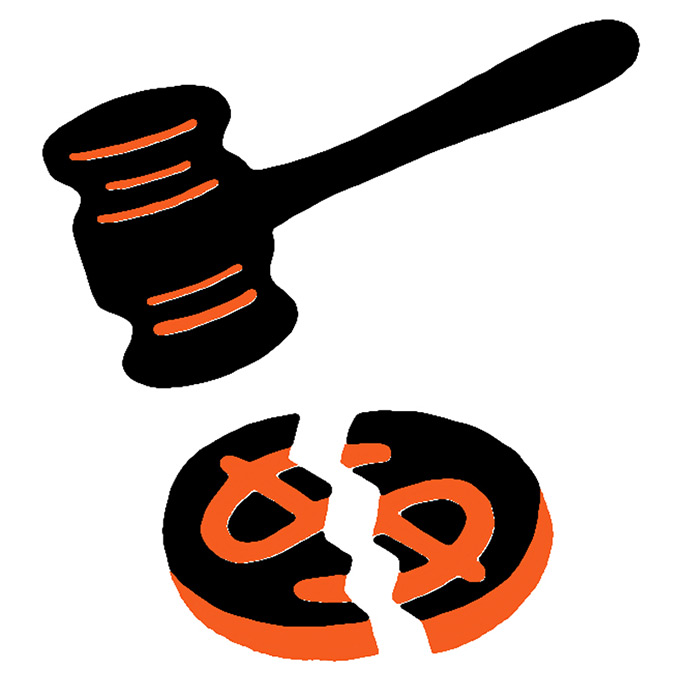The system of bail we use in the United States is a direct descendent of the medieval system of bail that arose from English Common Law. Bail is such an important aspect of our criminal justice system that the 8th Amendment to the constitution states clearly that excessive bail shall not be imposed. Over the past 50+ years two important pieces of legislation have attempted to reform the bail system. The 1966 Bail Reform Act created a statutory right to bail, while the Bail Reform Act of 1984 gave the government the right to deny bail in certain circumstances. But even these well-meaning attempts to clarify what bail is and what it means today have failed to quiet the discord around the subject. Below we’ll take a look at the essence of that discord and whether bail opponents have a point.

How Bail Bonds Fell Out of Favor
Although they still provide one of the most important services offered by any professionals operating within the criminal justice system the bail bondsman has nonetheless fallen out of favor in many circles. In fact, the entire concept of bail is under continual assault these days. Why is this? Here are 3 aspects of bail that opponents complain most loudly about:
Subjectivity- Whereas other amendments to the Constitution state in black and white that (for example) freedom of speech and gun ownership are inalienable rights, there is nothing in the 8 Amendment that’s quite so clear. While it does say that “excessive bail” shall not be charged, it doesn’t say that “Every defendant shall have an ironclad right to bail”. This murkiness on the part of the Founding Fathers has led to all kinds of confusion, nitpicking and conflicting interpretations about just what bail is and what it isn’t.
Unfair application - 70 percent of people being held in county jails in the US are there because they can’t obtain bail. This is one of the primary talking points bail opponents use to argue for scrapping the entire system. But this statistic is very misleading. The fact is most of those 70 percent are not innocent first time offenders who got busted for jaywalking. Most in fact have either:
- Jumped bail in the past, (which led the presiding judge in their new case to call for a higher bail amount), or
- They are accused of violent crimes (the bail amount for assault with a deadly weapon is much higher than it is for disorderly conduct) or
- They are being held on non-bailable offenses such as child sexual assault or murder.
When you strip away all the people who are being held for good reason the percentage of those being held because bail for their first offense is too high is reduced to single digits. As such the notion that large numbers of people are in jail in Adams County, Broomfield County, Weld County and Denver because bail rules are being applied unfairly is a baseless argument that ignores the particulars of most cases.
Coercion- It’s argued by bail opponents that bail is used as a means of coercion. That is, person X gets arrested for crime A and can’t afford the bail. The prosecutor knows this and exploits it by offering a plea deal: “Plead guilty to a lesser offense and we’ll credit you for time served and release you.” Which sounds good. But in reality it has caused lots of poor people to confess to things they didn’t do just so that they could gain their freedom and prosecutors could clear crimes from their books. Does this ever happen? Of course. On the other hand the reason the person could not obtain bail isn’t always cut and dry. It may be because they are a repeat offender or accused of a non-bailable offense.
Throwing the Baby Out With the Bath Water
California, New Jersey and other states have recently voted to all but eliminate cash bail and leave the decision whether to detain someone until trial or release them while awaiting trial to a computer algorithm and trial judges. Although this sounds reasonable enough it ignores a couple of salient facts:
People are human - And judges are people. Leaving the decision of whether or not to release prisoners awaiting trial to judges invests them with broad new discretionary powers they didn’t have before. Almost as soon as California did away with cash bail the ACLU and other organizations moved to block the new law. Their argument was that by eliminating bail too much discretionary power was granted to judges. And this from an organization (the ACLU) that helped sponsor the original bail revocation law.
Still guilty before being tried - One of the main arguments for doing away with bail bonding was that innocent people were allegedly being treated like they were guilty even though they had not been convicted of any crime. When defendants are released now in CA and NJ however, they’re being forced to wear monitoring bracelets, adhere to curfews, have mandatory drug tests and check in with the court. All these restrictions smack of someone who has been convicted of a crime even though these people have not yet been tried for the charges against them.
Conclusion
The subject of bail is a complex one that resists easy solutions. Certainly though, the headlong assault on bail in recent years has done little but toss the baby out with the bath water. Is reform needed? Most likely yes. But thoughtful, effective reform. Not simply change for the sake of change.